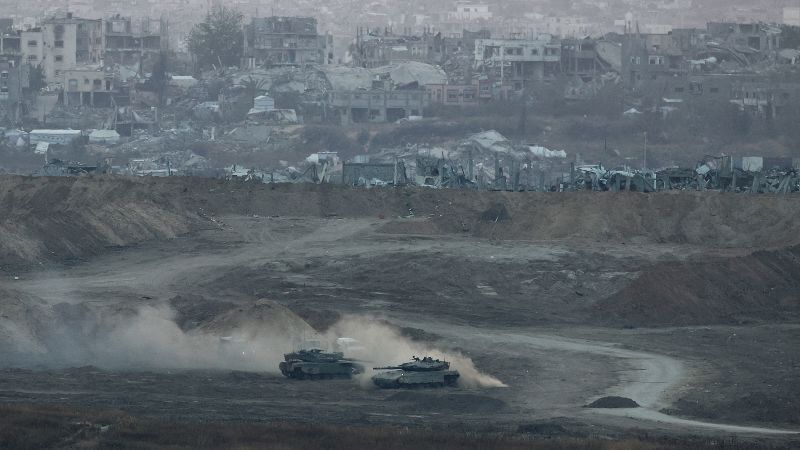Israel Mobilizes Tens of Thousands of Reservists Amid Escalating Gaza Offensive

In a significant escalation of its military operations, Israel has announced plans to mobilize tens of thousands of reservists as part of an expanded offensive in the Gaza Strip. This mobilization comes at a time when negotiations aimed at establishing a ceasefire seem to be faltering, raising concerns not only about the ongoing conflict but also about the safety of the hostages still held by Hamas.
The decision to expand military efforts follows reports that the Chief of Staff of the Israel Defense Forces (IDF), Lieutenant General Eyal Zamir, presented a detailed plan to Prime Minister Benjamin Netanyahu and Defense Minister Israel Katz on Friday. The proposed strategy includes a directive to evacuate Palestinian civilians from northern and central regions of Gaza in anticipation of intensified military operations there. This tactic mirrors earlier actions taken in southern Gaza, particularly around the city of Rafah, where extensive military activity has already occurred.
Public broadcaster Kan 11 reported on Saturday that Netanyahu's Security Cabinet is expected to approve this ambitious military plan in a meeting set for Sunday. Speaking to the press, Lieutenant General Zamir articulated the urgency of the decision, stating, “This week we’re issuing tens of thousands of orders to our reservists in order to intensify and expand our operation in Gaza. We’re increasing the pressure in order to return our people and defeat Hamas.” He further emphasized that the IDF would extend its operations to additional areas to dismantle all infrastructure utilized by Hamas, both above and underground.
This announcement has sparked anxiety among the families of the 59 Israeli hostages currently held by Hamas in Gaza. These hostages were primarily taken during the deadly assault by Hamas on October 7, 2023, which initiated a series of Israeli airstrikes that have reportedly resulted in over 50,000 fatalities in Gaza over the past 18 months. The Hostages and Missing Families Forum Headquarters issued an urgent appeal, warning that any escalation in military actions could jeopardize the lives of the hostages. “The vast majority of the Israeli public views the return of the hostages as the nation’s highest moral priority,” the forum stated.
Unfortunately, attempts to negotiate the release of the hostages have been stagnant for weeks. Mediation efforts involving Egypt and Qatar have repeatedly failed, with Hamas demanding a permanent ceasefire and a complete withdrawal of Israeli forces from Gaza. In contrast, Israel has accused Hamas of rejecting what it considers to be “reasonable offers” for a resolution.
Over the weekend, tensions escalated further when Netanyahu accused Qatari mediators of attempting to play both sides in the negotiations, asserting that Qatar must choose whether it stands with “civilization or with Hamas barbarism.” This statement seems to arise from recent reports suggesting that Qatar had advised Hamas against accepting an Egyptian ceasefire proposal.
In response, a spokesperson for Qatar’s Foreign Ministry dismissed Netanyahu’s accusations as a distortion of their diplomatic endeavors. They contended that Israel was utilizing humanitarian aid as a form of “political coercion,” pointing out that a total blockade of aid to Gaza has persisted for three months. “Is this truly the model of ‘civilization’ being promoted?” they questioned in a post on social media platform X.
Furthermore, the spokesperson raised another critical question: “Were the releases of no fewer than 138 hostages achieved through so-called ‘just’ military operations, or through the very mediation that is now being unjustly criticized and undermined?” This highlights the ongoing complexities surrounding the negotiations and the humanitarian crisis in the region.
Adding to the already tense atmosphere, Netanyahu recently stated that defeating Israel’s enemies has become a more pressing priority than securing the release of the remaining hostages. This marked a shift in his previously stated dual objectives, which included both the defeat of Hamas and the safe return of the hostages, drawing significant backlash from families of those still held captive.
In light of these developments, the Prime Minister’s Office announced that Netanyahu’s planned visit to Azerbaijan, originally scheduled for May 7-11, has been postponed. The change was attributed to an “intense diplomatic and security schedule,” reflecting the evolving situation in Gaza and neighboring Syria.



























